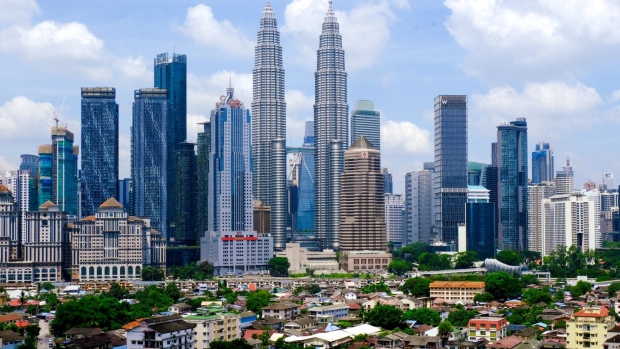Oct 20, 2022
Malaysia Plans Early Polls as PM’s Party Wants New Mandate
, Bloomberg News

(Bloomberg) -- Malaysia will hold its general election on Nov. 19 with Prime Minister Ismail Sabri Yaakob’s party looking to capitalize on a string of victories from local polls and consolidate power in the Southeast Asian country.
The Election Commission fixed nomination day for Nov. 5, with campaigning period to run for 14 days through Nov. 18, Chairman Abdul Ghani Salleh said at a briefing Thursday. A total of 222 parliament seats will be contested, along with the state seats of Perak, Pahang and Perlis, he said.
A national vote isn’t due until September next year but key members of Ismail’s United Malays National Organisation wanted to bring forward elections to capitalize on a weaker opposition and regain the mandate following a shock defeat in 2018. UMNO clawed back into power after the collapse of Mahathir Mohamad’s government but has led a very fragile coalition since.
The elections will involve multi-cornered contests, with several coalitions including UMNO-led Barisan Nasional and opposition leader Anwar Ibrahim’s Pakatan Harapan alliance vying for votes. That makes it tricky for any party to win an outright majority needed to ensure political stability.
Adding to the uncertainty is the impact 5.8 million new young voters would have in shaping the outcome of the election, following the government’s move to lower the minimum voting age to 18 from 21. The Election Commission said 21.17 million voters will be casting their ballots, versus almost 15 million in the 2018 vote.
Besides the influx of millions of new voters, there’s the risk of disruption from floods during the rainy season that starts in November. Floodwaters last year left dozens dead and led to more than 6.5 billion ringgit ($1.4 billion) in losses. The Malaysian Armed Forces are ready to deal with flood disasters even if it happens during the election period, Bernama reported Senior Defence Minister Hishammuddin Hussein as saying this week.
Malaysia PM Dissolves Parliament, Paving Way for Early Vote
Malaysia’s shaky political situation has been a sore spot for investors and credit rating companies due to a series of short-lived coalitions that brought the country three prime ministers since the last general election in 2018.
Pakatan Harapan ousted UMNO in the historic vote that year but collapsed 22 months later due to defections. That returned UMNO to power in alliance with Muhyiddin Yassin’s Perikatan Nasional. The grouping didn’t last -- Muhyiddin was forced to resign as premier in August 2021 after some UMNO lawmakers withdrew support, paving the way for Ismail to take office.
In recent months Ismail faced repeated calls from UMNO leaders to hasten elections. He dissolved parliament on Oct. 10, citing the need to restore the people’s mandate to resolve criticisms over his government’s legitimacy.
--With assistance from Cecilia Yap, Anuradha Raghu and Joy Lee.
(Adds details on voter base in fifth paragraph)
©2022 Bloomberg L.P.








